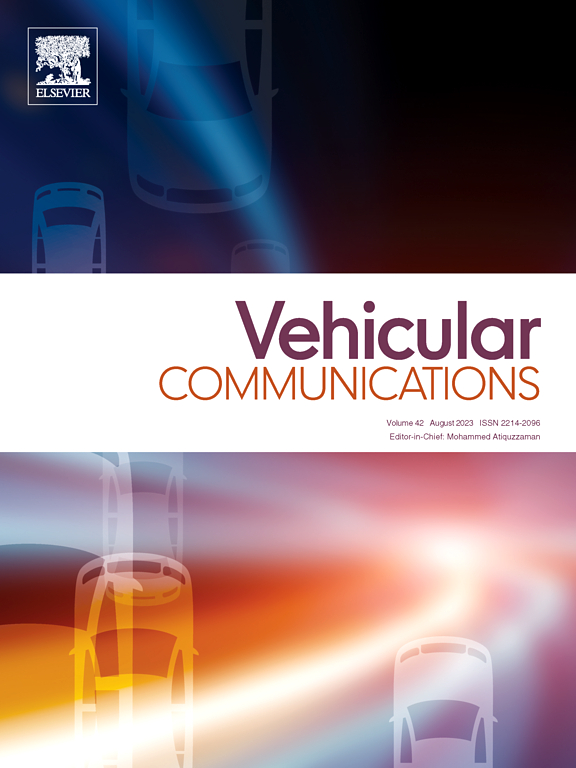A secure and efficient lattice-based conditional privacy-preserving authentication protocol for the VANET
IF 6.5
2区 计算机科学
Q1 TELECOMMUNICATIONS
引用次数: 0
Abstract
On the benefit of the prosperous development of the communication techniques and automatic driving, the vehicle ad hoc network (VANET) is becoming more and more commonplace. The information transmitted in the VANETs is exposed in the open wireless communication environment, so it is vulnerable to several types of attacks. To balance the information security and privacy in the VANETs, there are a great number of conditional privacy-preserving authentication protocols proposed. However, only a few of them are resistant to quantum attacks, and these existing quantum-resistant works are unsatisfactory, ether are insecure or suffer from other problems. In this paper, we propose a secure and efficient lattice-based conditional privacy-preserving authentication protocol for the VANETs, which can achieve authentication and privacy protection, and a batch verification method is provided to further optimize the performance. Compared with the existing counterparts, our protocol is secure, efficient, and achieving lowest communication overhead. We provide several parameter sets, and the protocol achieves least execution time under some of them. We also show a security proof of the protocol in the random oracle model, based on the assume of inhomogeneous small integer solution problem.
一种安全高效的基于格的VANET条件隐私保护认证协议
随着通信技术和自动驾驶技术的蓬勃发展,车辆自组织网络(VANET)变得越来越普遍。在VANETs中传输的信息暴露在开放的无线通信环境中,因此容易受到多种类型的攻击。为了平衡vanet中的信息安全和隐私,人们提出了大量的条件隐私保护认证协议。然而,它们中只有少数能够抵抗量子攻击,而且这些现有的抗量子工作并不令人满意,要么是不安全的,要么是存在其他问题。本文提出了一种安全高效的基于格的vanet条件隐私保护认证协议,实现了认证和隐私保护,并提供了批验证方法进一步优化性能。与现有协议相比,我们的协议安全、高效、通信开销最小。我们提供了几个参数集,在其中一些参数集下,协议的执行时间最短。基于非齐次小整数解问题的假设,给出了该协议在随机oracle模型下的安全性证明。
本文章由计算机程序翻译,如有差异,请以英文原文为准。
求助全文
约1分钟内获得全文
求助全文
来源期刊

Vehicular Communications
Engineering-Electrical and Electronic Engineering
CiteScore
12.70
自引率
10.40%
发文量
88
审稿时长
62 days
期刊介绍:
Vehicular communications is a growing area of communications between vehicles and including roadside communication infrastructure. Advances in wireless communications are making possible sharing of information through real time communications between vehicles and infrastructure. This has led to applications to increase safety of vehicles and communication between passengers and the Internet. Standardization efforts on vehicular communication are also underway to make vehicular transportation safer, greener and easier.
The aim of the journal is to publish high quality peer–reviewed papers in the area of vehicular communications. The scope encompasses all types of communications involving vehicles, including vehicle–to–vehicle and vehicle–to–infrastructure. The scope includes (but not limited to) the following topics related to vehicular communications:
Vehicle to vehicle and vehicle to infrastructure communications
Channel modelling, modulating and coding
Congestion Control and scalability issues
Protocol design, testing and verification
Routing in vehicular networks
Security issues and countermeasures
Deployment and field testing
Reducing energy consumption and enhancing safety of vehicles
Wireless in–car networks
Data collection and dissemination methods
Mobility and handover issues
Safety and driver assistance applications
UAV
Underwater communications
Autonomous cooperative driving
Social networks
Internet of vehicles
Standardization of protocols.
 求助内容:
求助内容: 应助结果提醒方式:
应助结果提醒方式:


